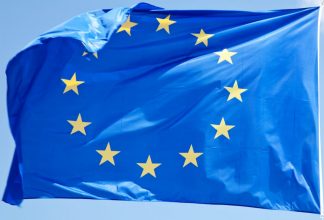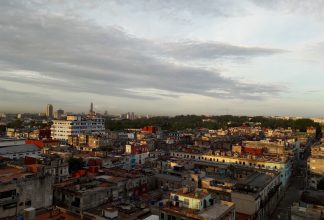How Can the EU Help Cuba?
Letter #10 by Alejandro Rodriguez Gonzalez.
In July 2019, Civil Rights Defenders invited Cuban human rights defenders and civil society organisations to contribute with texts on how the European Union should work towards Cuba. This letter is written by Alejandro Rodriguez Gonzalez.
How Can the EU Help Cuba?
I hereunder submit for your consideration, what I understand would be appropriate in order to assess the EU relations with Cuba, in accordance with the invitation made by Civil Rights Defenders to the entire Cuban civil society:
1. We understand that the right of the Cuban citizen to information will give them the ability to decide, which has been non-existent until very recently, and currently very restricted. The unrestricted access to information will open a path never explored by the population, giving it the ability to assess the Cuban situation with the soundness of having the most informational elements. It is known that before having the right to decide, it is necessary to have had the right to information.
The EU must facilitate the expansion of connectivity throughout the national territory (not with terminals for end-users, but multiplication of local Wi-Fi networks) and assess whether the content that a citizen on the island can access with that growing connectivity is biased, manipulated or banned.
2. The existence of prisoners of conscience in Cuba is unacceptable. Harassment, intimidation and restrictions of freedom of expression must end. The existence of European observers on this issue has been a cause of estrangement between the parties and used as propaganda by the regime. Enabling the statements in point 1, the EU could contrast the information provided by the government without observers on the island.
Any EU action must be contingent upon the immediate release of all prisoners of conscience on the island, although their numbers are not precise and their existence is denied by the authorities, who etymologically use qualifiers such as “prisoners for counter-revolutionary activities,” covering up a flagrant violation of citizen rights.
3. The current territorial division multiplies the bureaucracy, which in turn is used to hide inefficiency by presupposing a manifest loss of productive capacity. The political administrative division of 1975 should be reviewed in order to reduce it to the minimum. The connectivity that is suggested in point 1 will give the possibility of significantly reducing the procedures and time needed to carry them out, releasing an immense productive capacity in a country that has lower sugar harvests now than those achieved when it was a Spanish colony.
The EU must cooperate with its experience in reducing the time and immediacy of the necessary bureaucratic services via connectivity between agencies and ministries, reducing the use of printed paper and digitalisation of existing ones.
4. Following the experience of Panama and Costa Rica and taking into account the characteristics of modern warfare, the Revolutionary Armed Forces (FAR) must be retired and the current arsenal (completely unusable for “modern warfare”) must be deactivated and destroyed in a controlled manner. An immense productive capacity needed to create goods for use, consumption and services would be triggered. Internal security forces must have limited war capacity and, if possible, disarmed.
The EU must, with the experience of small European countries without armies and Iceland, propose a possible transition to a country of peace with a huge need for working-age labour, and facilitate the strategies of an immense population that could become future entrepreneurs. We understand that the intellectual capacity of the Cuban people is high, which is unquestionably the work of the revolutionary process. This would facilitate the task of stimulating economic development in a country of surprisingly and inexplicable levels of poverty.
5. The economic conditions of the island have prevented the acquisition of phytosanitary products in the world market and this is actually a great advantage for sustainable agricultural development. The seas of the insular platform can be considered as some of the most protected in the world and these great advantages must be preserved and reinforced with environmental laws. As a country with exceptional agricultural possibilities, all ecological capacity must be implemented with the least possible environmental impact. Citizens’ right to food should move as far as possible from agricultural malpractice towards the environment. Monoculture should be eliminated, and the proliferation of family farming economy should be encouraged as soon as possible with urgent measures.
The EU’s experience in this field is significant and must transfer ecological technology to avoid mistakes that harm the environment and take advantage of the great quality that Cuban lands, not subjected to high consumption of herbicides and phytosanitary products, have. This has also led to water tables of good quality. The right to proper food and organic farming techniques would be facilitated by the provisions of point 1.
6. The right to decent housing for citizens is at its lowest mark in history, reinforced by a socialist architecture of poor execution and design. The beautiful colonial constructions must be restored to their original state throughout the national territory. Thanks also to a long period of no investments, Cuban cities and their beautiful constructions are ideal to be restored, preserving the architectural heritage that has been lost in countries that chose to replace these treasures with massive structures of steel, glass and cement.
Architecture, as one of the fine arts, has formidable examples throughout Europe that can encourage the island with its experience. Intact cities such as Prague, Vienna or reconstructed cities such as Berlin have sufficient examples to inspire the island with a prominent future in this sector, as important as citizen rights.
7. We understand that Cuban embassies and consulates abroad are organs of control and repression for citizens who are not on the island, due to the obligation to carry a Cuban passport that is expensive and has quick expiration dates. Also, Cuba does not sign labour-time agreements with other nations. That affects its citizens and its own economy, since the island has family remittances from abroad as one of its major sources of currency, at no cost to the government. It is contradictory that these agreements are not provided in favour of Cuban citizens who do not live in Cuba.
Dual nationality is a widespread concept in the world. The EU can raise awareness about this with international treaty regulations.
With no other particular and thanking your attention in advance,
Alejandro Rodriguez Gonzalez
About Alejandro Rodriguez Gonzalez
Alejandro Rodriguez Gonzalez was born in Havana in 1960. He is a graduate of industrial engineering at the José Antonio Echeverría Higher Polytechnic Institute. He worked as a system analyst, programmer and administrator in state-managed agencies. He was a member of the Union of Young Communists of Cuba and the Communist Party of Cuba (PCC) for more than twenty years. The economic and political situation of the island forced him to change his place of residence to Spain. Currently, he does not belong to any political group or party, and hopes to return to his native country.

